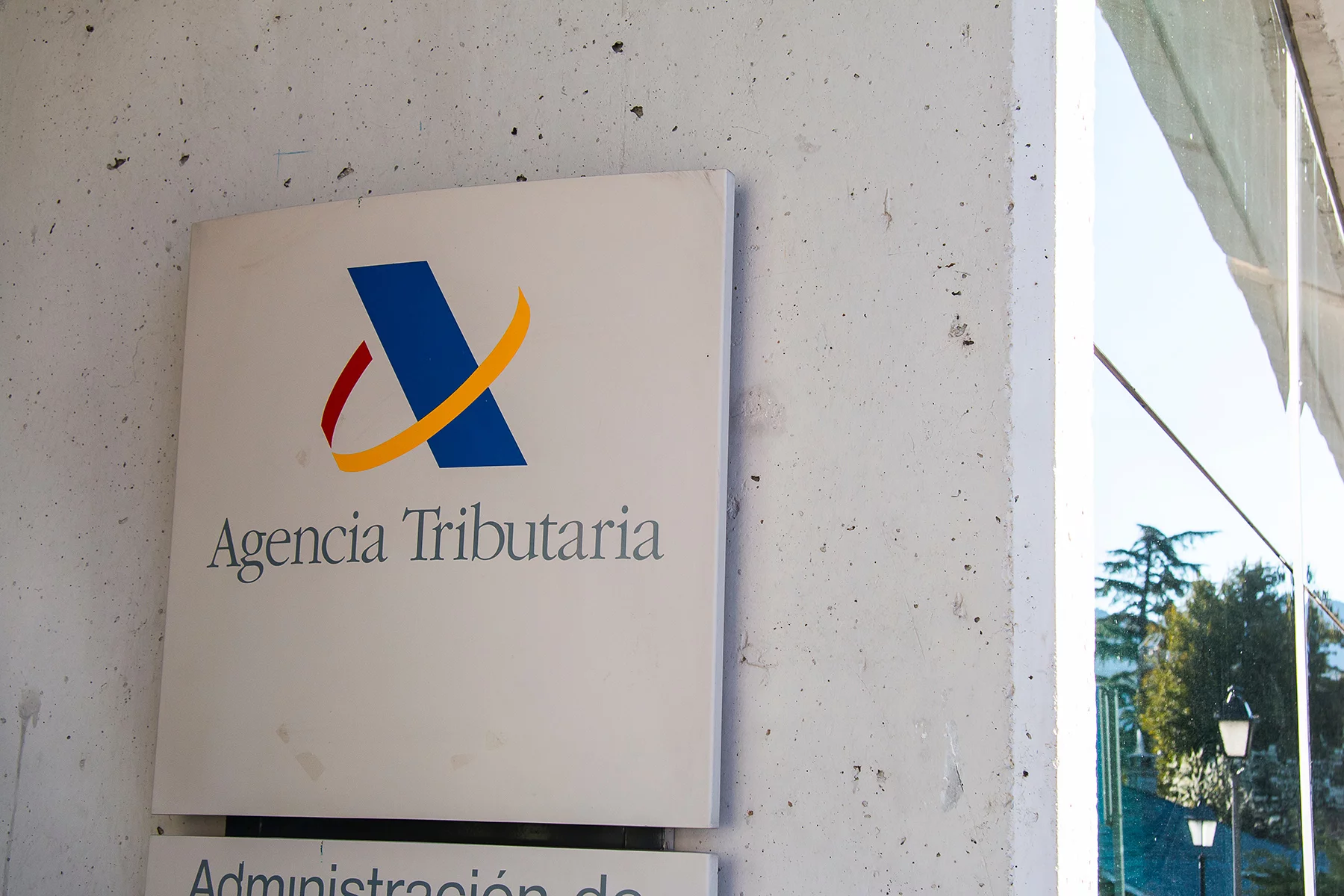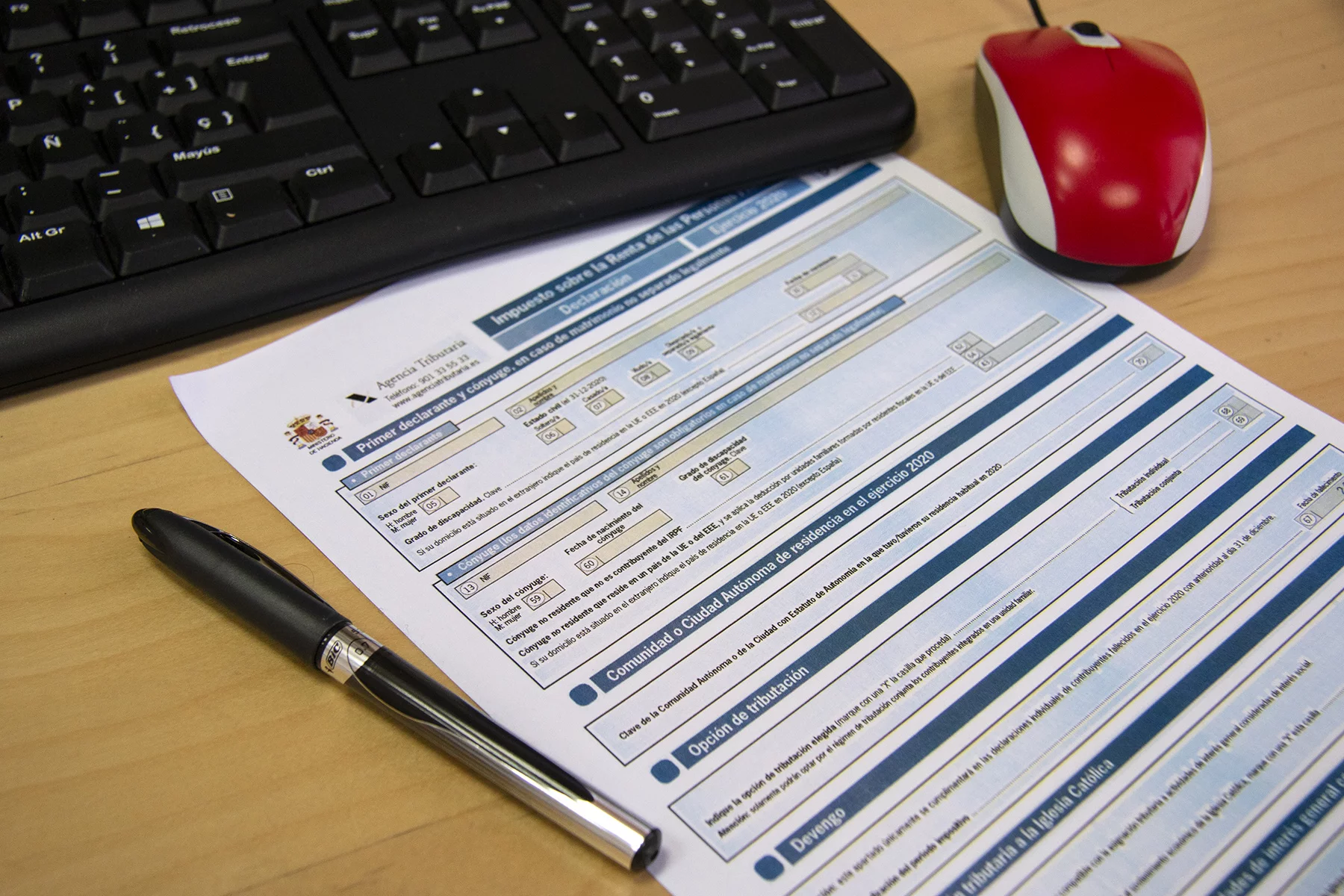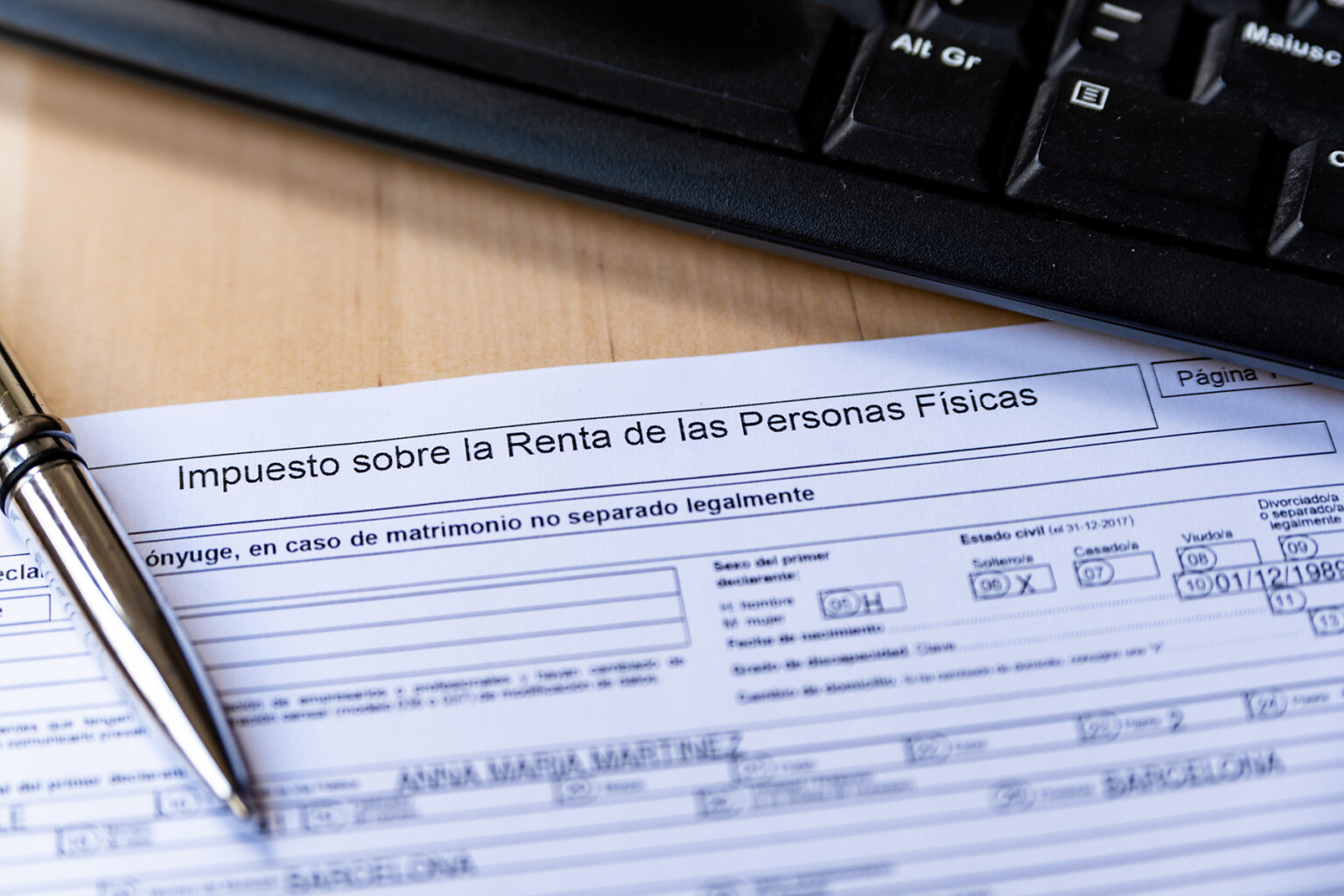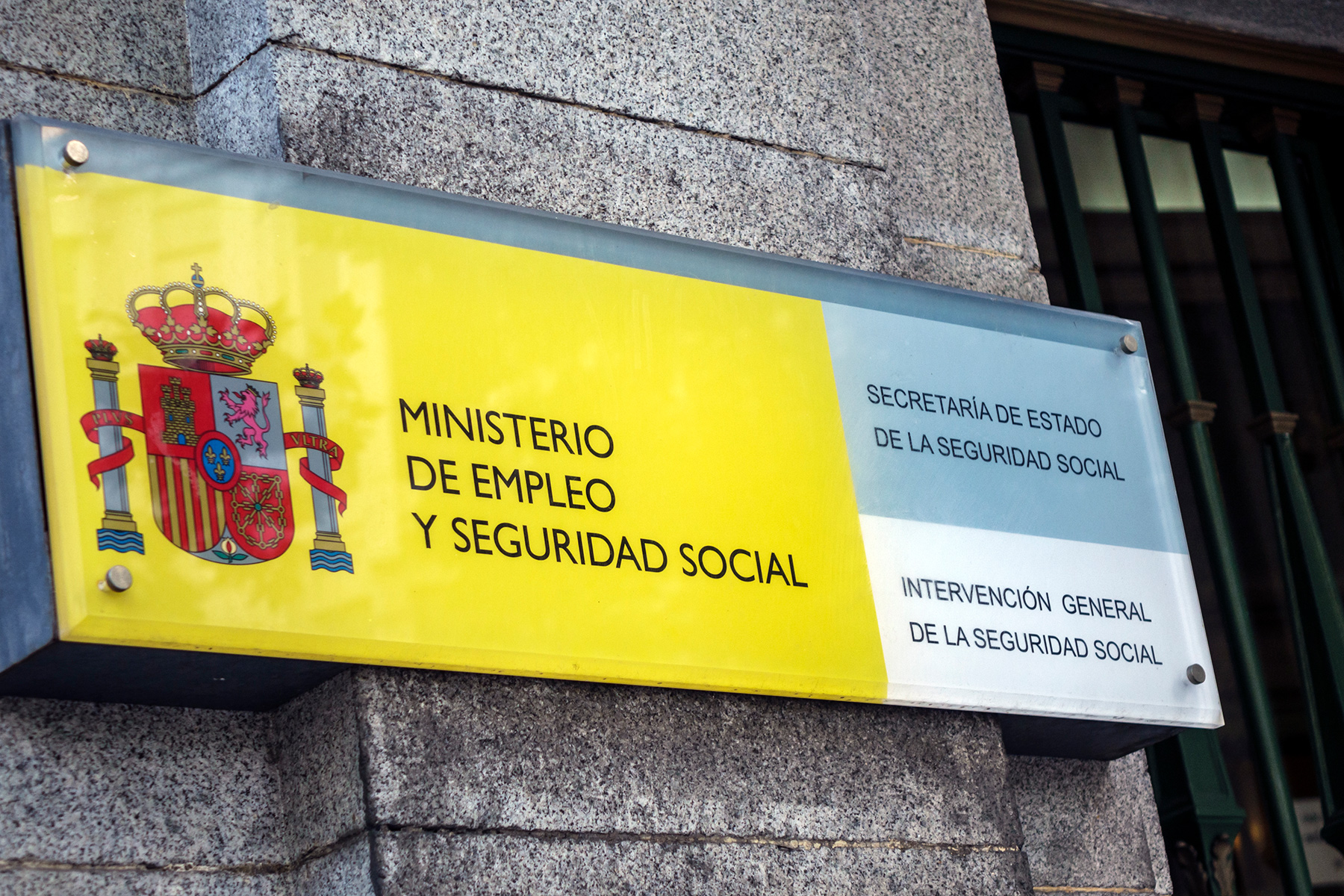When you move abroad, figuring out your new country’s financial system can be one of the biggest challenges. Taxes are especially intimidating, with the rates and deadlines being subject to annual change. Below, you’ll find everything you need to know about Spanish tax returns, including details on the following:
Balcells Group
Balcells Group provides legal advice to individuals, companies, investors, immigration agencies and other intermediary agents. They have over 40 years of professional experience, and have built their firm based on the integration of several generations of lawyers that offer a balanced vision based on experience and modernity.
Income tax in Spain: Overview and latest developments
Personal income tax in Spain is called Impuesto de Renta sobre las Personas Físicas, or IRPF. Spain’s tax agency, the Agencia Tributaria (link in Spanish), regulates income tax in the country.

Residents and non-residents are liable to pay tax on their earnings. Spain operates a pay-as-you-earn (PAYE) system, where employers withhold tax from your salary and pay it directly to the tax agency.
For expats managing finances across multiple countries, the process of moving money to and from Spain can impact your overall financial picture.
Services like Wise offer multi-currency accounts with mid-market exchange rates and transparent fees, which can be particularly helpful when transferring money to pay taxes or moving money between countries. This can help you avoid losing money on poor exchange rates that might be offered by other providers.

There are two types of taxable income in Spain: general taxable income (renta general) and savings income (renta del ahorro). Consequently, you must consider both when filling out your Spanish tax return. Married taxpayers can choose to be taxed separately or together.
Savings and investments
You’ll need to pay tax on the following forms of income from savings and investments:
- Dividends and other income generated from investments in companies
- Interest and other payments from capital transferred to third parties
- Income generated from life and disability income insurance
- Capital gains from transfers of assets
Income tax on savings and investment income is levied at different rates to employment income. In 2025, the rates are as follows:
- 19% for the first €6,000 of taxable savings income
- 21% for the following €6,000–50,000
- 23% for the following €50,000–200,000
- 27% for the following €200,000–300,000
- 30% for any amounts over €300,000 (up from 28% in 2024)
Rental income
Spanish tax residents and non-residents who live in the EU pay a tax rate of 19% on rental income after the allowed expenses.
Most importantly, a flat 60% credit is available when renting a residential property. You can also deduct 3% depreciation annually and other expenses such as agent fees, maintenance, and insurance.
Non-residents outside the EU must pay a flat income tax rate of 24% and are not allowed to offset any expenses.
Latest news about income taxes in Spain
For 2025, the tax rate on savings income over €300,000 has risen from 28% to 30%. Other income tax rates have remained unchanged.
Tax rates: how much tax will I pay in Spain in 2025?
The income tax on employment earnings is divided between the state and the country’s autonomous regions, ensuring a fair distribution. The tax on general income is determined by a progressive scale, which is the combined rate approved by the state and each autonomous community. This system ensures that everyone pays their fair share based on their income.
Income tax rates generally range from 19% to 47%, with the rate payable broken down into six brackets depending on income. As some of Spain’s autonomous states set different tax brackets and rates, your total tax bill will vary depending on where in the country you live.
The tax brackets for 2025 are as follows:
| Income tax bracket | Federal income tax | Regional tax (example) | Total tax rate |
| €0–12,450 | 9.5% | 9.5% | 19% |
| €12,451–20,200 | 12% | 12% | 24% |
| €20,201–35,200 | 15% | 15% | 30% |
| €35,201–160,000 | 18.5% | 18.5% | 37% |
| €160,001–300,000 | 22.5% | 22.5% | 45% |
| €300,001 and above | 23.5% | 23.5% | 47% |
The following websites offer an idea of how much income tax you may be required to pay as an expat in Spain:
Income tax for self-employed workers
Tax residents who are freelancers, or self-employed professionals (autónomos), pay income tax in Spain at the same rate as everyone else. Unlike employed workers, most self-employed people need to file on a quarterly basis and make advanced payments to the tax office. Freelancers may claim tax deductions on several grounds, provided they have proper invoices and receipts.
These include social security contributions, accounting and tax service costs, professional subscriptions, office expenses, phone, internet, and any vehicles used for work.
Who pays income tax in Spain?
Who needs to file a Spanish tax return?
The Spanish tax year runs from 1 January to 31 December. The period for completing income tax returns for 2024 is between 2 April and 30 June 2025.

In your first year of tax residency in Spain, you’ll need to file a tax return. From the second year onwards, you’ll only need to file a return if your income from employment is greater than €22,000, as your income tax will have been calculated and deducted by your employer. This only applies if your job is your sole source of income.
Spanish income tax for foreigners
As an expat, your income tax burden will depend on whether you’re considered a tax resident. Anyone who meets one of the following requirements is deemed a resident:
- You spend more than 183 days per calendar year in Spain. Sporadic absences are considered days of residence in Spain unless you can prove your tax residence status in another country or territory.
- You have business or economic interests directly or indirectly located within Spanish territory.
- You have a spouse or dependent children who are Spanish tax residents.
For Spanish tax residents, general taxable income includes salaries and other income that isn’t from savings. This includes lottery winnings, benefits in kind, school tuition reimbursements, and assignment allowances. You must declare any assets outside of Spain if you are considered a tax resident.
Managing finances across borders can be complicated and costly with traditional banking options. Expats can use Wise to hold, exchange, and transfer money between countries using the mid-market exchange rate.
This is particularly valuable when paying taxes in Spain while maintaining accounts abroad, or when transferring larger sums where Wise offers discounted transfer fees (over the equivalent of 20,000 GBP, in one transfer or over multiple transfer within a month).
The tax system in Spain is straightforward for non-resident taxpayers. You are only taxed on income earned within the country. This income is taxed at a flat rate of 24%, while capital gains and other investment income are taxed at 19%. It’s worth noting that non-residents aren’t allowed any deductions or credits when filing their tax returns, except for some expenses permitted for tax residents of other EU countries.
In recent years, the Spanish authorities have begun to crack down on tax evaders. This means that the burden of proof of non-residence belongs to individuals. Consequently, you may be considered a tax resident if you have a local address, a car with license plates registered in Spain, a Spanish mobile phone, a Spanish bank account that you use regularly, or have used the Spanish healthcare system.
Double taxation agreements
Spain has double taxation agreements with over 80 countries worldwide so that expats may be exempt from certain tax liabilities in their home countries. Typically, you won’t be taxed on the same income twice, but bilateral agreements differ from country to country. Therefore, it’s best to consult a Spanish tax law professional on queries about income tax in Spain.
While double taxation agreements prevent paying tax twice on the same income, you’ll still need a practical way to move money between countries to fulfill your tax obligations. Wise provides a cost-effective solution for transferring funds across borders with transparent fees and the mid-market exchange rate. This can be especially useful when you need to pay taxes in Spain from foreign income sources, or when repatriating funds after tax compliance.
If there is no treaty with your country of origin, you may deduct the foreign tax paid when filing your Spanish tax returns. Additionally, foreign compensation may be applied. Your Spanish lawyer can also calculate this amount for you.
Expats residing in Spain who own assets in excess of €50,000 outside the country are legally obliged to declare those assets by 31 March of the tax year in order to reduce the amount of tax avoidance. Failure to do so could incur penalties or criminal charges. These assets include money held in bank accounts, property, shares, and life insurance policies.
Beckham’s Law
Beckham’s Law was introduced in 2004 to entice a greater number of foreign workers and international companies to come to Spain.

The rule means that employees on assignment in Spain can pay a flat tax rate of 24% on income up to €600,000. Those who earn more than this amount pay 47% on additional earnings. A 3% tax rate is also payable on any income from dividends, interest, or capital gains over €200,000.
Beckham’s Law is a tax provision that benefits expats who meet specific criteria. To be eligible, you must not have been a Spanish tax resident in the last five years (10 years until 2022), have relocated to Spain specifically for a job with a Spanish employer, and will work in Spain for at least 85% of the time. You must also apply within six months of moving to Spain, and the benefits last for a period of six years.
Who is exempt from Spanish income tax?
Resident taxpayers are allowed certain deductions on income tax in Spain, providing greater support for the lowest earners and pensioners. The basic tax-free personal allowance for everyone under 65 is €5,550, €6,700 starting at 65, and €8,100 from 75.
How do you file your tax return in Spain?
How to register for tax in Spain
Before filing an income tax return, you’ll need a mandatory tax identification number (Número de Identidad de Extranjero – NIE), which tracks financial and legal activities in Spain. European citizens must apply for an NIE after three months of residence in Spain. Non-EU citizens typically receive their NIE when their residency application is approved.
Which forms do I need to fill out?
Spanish tax residents must complete Form 100 (Modelo 100) to declare income tax. Non-residents must apply to make a declaration using Modelo 149 and make it using Modelo 150. Non-resident property owners use Modelo 210.
You can file income tax returns online at the tax authority’s website. You’ll need a digital identification certificate to file. You can also submit your returns in person at your local tax office or at a Spanish bank where you’re an account holder in some circumstances.
Deductibles and tax relief
If you file your taxes jointly with your partner, the second taxpayer receives a married couples’ allowance (declaracion conjunta) of €3,400. This is in addition to a general allowance of €5,550 granted to the first taxpayer.
Furthermore, if you have children under 25 living with you, you can claim an allowance as follows:
- €2,400 for the first child
- €2,700 for the second
- €4,000 for the third
- €4,500 for the fourth
- An additional allowance of €2,800 for each child under 3

If you have a parent or grandparent living with you and your total income is less than €8,000, you can claim an allowance of €1,150 if they are over 65 and €2,550 if they are over 75.
Generally, you can claim tax deductions in Spain for:
- Payments into the Spanish social security system
- Spanish pension contributions
- Renovating or buying a house in Spain
- Joint filings
- Charitable donations
Deductible individual contributions to pension plans are capped at €1,500. The maximum deduction on contributions to company plans, however, has risen from €8,000 to €8,500.
Deductions for employment benefits
Some portions of employment income are exempt from taxation in Spain. These include the following:
- Reimbursement of expenses related to relocating an employee
- Expenses connected with moving personal goods
- Company shares up to €12,000 annually, except for in major Spanish-listed corporations
- Under certain conditions, some in-kind benefits such as meal vouchers up to a daily amount of €11, nursery vouchers, public transport vouchers within certain limits, and medical insurance premiums up to a maximum annual amount of €500 per family member
In addition, under some circumstances, indemnities paid for dismissal or termination of employment contracts are exempt from taxation up to a maximum limit of €180,000. The free use of a company car is only exempt from income tax if its use is restricted to professional activities.
How do I pay my Spanish income tax?
If you owe tax after filing a return, you can pay online via the tax agency’s website or app. To do this, you’ll need to log into your account, navigate to the ‘Payments’ section, and follow the prompts to enter the amount you owe and your payment details. Alternatively, you can pay over the phone or at your local tax office or bank.
For expats who need to transfer money from foreign accounts to pay their Spanish taxes, using Wise can save you money with low transfer fees and mid-market rate. For larger tax payments (over the equivalent of 20,000 GBP), you can benefit from Wise’s discounted fees on high-value transfers, making it an low-cost choice for settling substantial tax bills.
Income tax refunds
Spain’s online tax system lets you find out immediately if you’ve overpaid on tax, so any refund due should be shown automatically.
You must include your bank account details in your tax return to claim a refund. The sum will then be credited automatically.
What happens if I don’t pay my income tax on time?
If you fail to complete a tax return in Spain, you can expect to pay a fine and interest on any tax owed. If you file late, you may be charged a fee ranging from 5% of the tax due (up to three months late) to 20% (more than a year late).
Additional penalties of between 50% and 150% of the tax due can be charged if late submissions are not made voluntarily (for example, if the tax office has demanded the submission). You’ll usually be charged the minimum penalty if you haven’t deliberately tried to avoid tax. The most significant penalties, such as those at the 150% level, are generally designed for those who’ve made deliberate or repeated violations, such as under-reporting income, inflating deductions, or failing to report offshore accounts.
Income tax advice in Spain
Specific questions about Spanish tax returns and how the law applies in individual cases should be directed to a Spanish legal expert. As a starting point, you can consult our Spanish directory of accountants and tax preparers to find assistance.
How do I determine my tax residency status in Spain?
You’re considered a tax resident if you spend more than 183 days in Spain during the calendar year, have your main economic interests in Spain, or if your spouse or dependent children are Spanish tax residents. If you’re a tax resident, you’ll pay tax on your worldwide income; if not, you’ll only pay tax on income earned in Spain.
What are the main deductions available for expats filing taxes in Spain?
Expats who are tax residents can claim deductions for contributions to the Spanish social security system, Spanish pension plans, charitable donations, and certain housing expenses. If you have children or dependents, you may also qualify for family-related allowances.
Useful resources
- Agencia Tributaria – Spanish tax agency official website
- Ministry of the Interior of Spain – responsible for the issuing of Spanish tax numbers
- Spanish National Police – processes NIE applications










